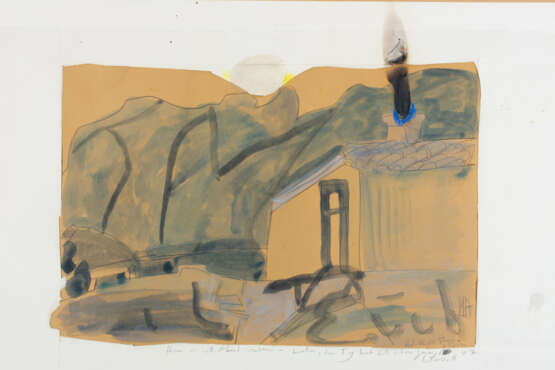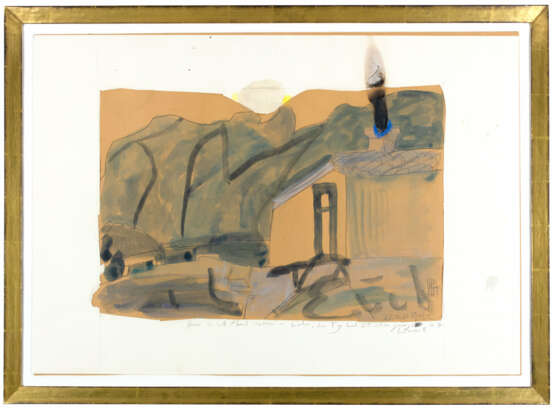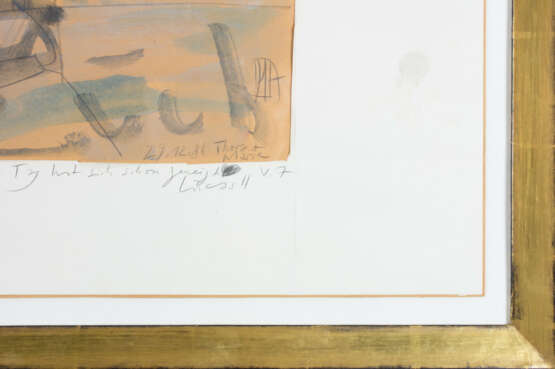ID 655583
Lot 44 | 'Herr es will Abend werden (...)'
Estimate value
€ 2 900
'Herr es will Abend werden (...)', Mischtechnik und Brandtechnik auf gelblichem Tonpapier, vom Künstler mit selbst ausgeschnittenem Passepartout versehen, 59 cm x 82,5 cm Blattmaß, signiert, 27.12.86 datiert, 'Herr es will Abend werden - siehe, der Tag hat sich schon geneigt. Lucas II V. 7.' bezeichnet, Provenienz: Privatsammlung Ruhrgebiet, direkt beim Künstler erworben; "DAS sollt ihr mitbringen: z. B. Fixativ, Mattlack, nur zum Beispiel / Ihr Schweine." (Horst Janssen handschriftlich an seiner Haustür, zit. n.: Albrecht, Henning: Horst Janssen. Ein Leben, Reinbek 2016) Horst Janssen wurde am 14. November 1929 im Hamburg geboren und zählt zu den produktivsten Zeichnern und Grafikern des 20. Jahrhunderts. Er war Zeichner, Grafiker, Autor, Plakatkünstler, Illustrator und Fotograf. Sein grafisches Oeuvre umfasst ca. 4.000 Blätter sowie 47 Radierfolgen. Schon während seiner Schulzeit offenbarte sich Janssens Zeichentalent. Von 1946 bis 1951 studierte er bei Alfred Mahlau an der Landeskunstschule in Hamburg. Mahlau nahm Janssen als Meisterschüler an und förderte diesen, so dass er von 1952 bis 1956 für den Buntpapierfabrikanten Guido Dessauer in Aschaffenburg arbeiten durfte. 1957 erlernte Janssen von Paul Wunderlich die Technik des Radierens, die zu seiner präferierten grafischen Technik werden sollte. Ab 1963 wendet der Künstler sich zunehmend dem Medium der Zeichnung zu. Mit diesem Medium reflektiert er sich über die Jahre in zahlreichen Selbstporträts.
| Auction house category: | Modern and contemporary drawings, watercolors and pastels |
|---|
| Auction house category: | Modern and contemporary drawings, watercolors and pastels |
|---|
| Address of auction |
WETTMANN | Auktionshaus an der Ruhr Friedrichstraße 67-67a 45468 Mülheim an der Ruhr Germany | ||||||||||||||
|---|---|---|---|---|---|---|---|---|---|---|---|---|---|---|---|
| Preview |
| ||||||||||||||
| Phone | +49 (0)208 3059081 | ||||||||||||||
| Fax | +49 (0)208 4391735 | ||||||||||||||
| Buyer Premium | 30% | ||||||||||||||
| Conditions of purchase | Conditions of purchase | ||||||||||||||
| Business hours | Business hours
|





